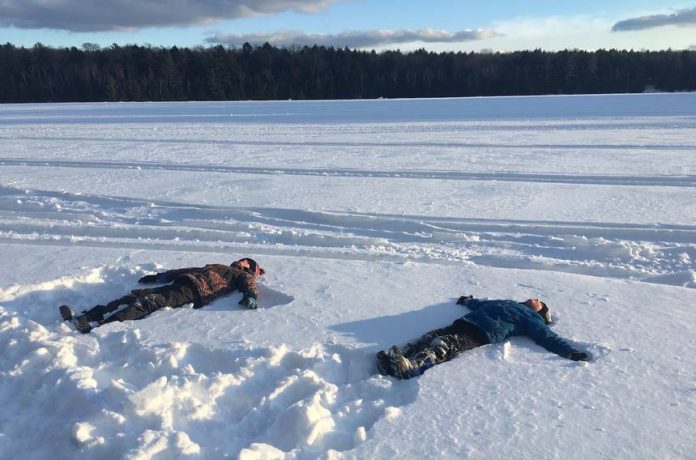By Katherine Martinko
It’s a conversation most parents don’t want to have, but it’s necessary.
In the past year, I’ve noticed a significant increase in the number of times my oldest child asks about climate change. He hears it mentioned on the radio, by his teacher at school, in conversations between me and his dad, and sees it in the titles of the books and articles I read.
As much as I want to satisfy his intellectual curiosity and inform him of the world in which he lives, it’s a tough conversation to have and never gets any easier. I don’t want him to become discouraged or depressed, to lack hope for his future or to feel anger at his parents’ and grandparents’ seeming inability to fix the problem. And yet, these conversations must be had because our children deserve to understand.
That’s where a recent episode of NPR’s Life Kit Podcast could come in handy – not only for me, but all parents of climate-curious children. The title is ‘How to talk to children about the climate crisis‘ and it offers practical tips for navigating strong feelings and “moving beyond helplessness toward action.”
The first most important step is to “break the silence.” Many adults are uncomfortable talking about the climate crisis even among each other, despite knowing the science is accurate. But we have to start talking about it in order to open up the conversation with our children.
Next, kids need basic facts. These can be selected by parents not to be too overwhelming or horrifying, but enough to illustrate a realistic picture of the situation and not water down the facts that they’ll inevitably learn elsewhere. Don’t leave it up to schools to educate, but spend time with your child reading a book or watching a documentary, then discuss.
It’s important for parents to be tuned in to their kid’s emotions, as intense feelings can result from learning about the climate crisis. Environmental psychologist Susie Burke suggests ’emotion-based coping,’ which means spending time doing pleasurable, positive activities with people we love as an antidote to the overwhelm. Spending time outside is always worthwhile, and it fosters a love of nature, a prerequisite for climate activism.
Help your kid to engage actively in the fight for the climate. Find out what local groups are doing and take your kid to attend protests, plant trees, pick up trash, attend city council meetings, tend a community garden plot, or start a petition, if that’s what they want to do. At home, consider eliminating meat and dairy from your family’s diet for breakfast and lunch, as suggested by Jonathan Safran Foer in his newest book, We Are The Weather. I insist on my children walking and riding their bikes as much as possible, explaining why we have to leave the car at home.
It’s important to be hopeful, to reassure children that people are taking action, that their own individual actions matter, that it’s OK to take a mental break and feel like a carefree kid enjoying childhood. NPR cites psychologist Susan Burke: “[Another] path to coping with a stressor like a climate change is meaning-focused coping. This is about thinking: how to frame the problem so that we can continue to hope and not collapse into cynicism, apathy or despair.”
Not mentioned in the podcast, but something I strive for is to be an example for my kids. In the words of author Peter Kalmus, “I try to live a life that’s informed by my knowledge and acceptance of global warming, a life that’s consistent with my values. If my boys ask me something, I answer as honestly as I can. I certainly never go out of my way to scare them, but I don’t lie to them either.” Fear is not constructive, but practical examples are. Teach your child actively how to live by cooking from scratch, walking to school, refusing plastic, choosing vegetarian, and more.
These are tough talks for tough times, but it’s better to face them head-on than to deny their necessity. Your child will appreciate you more for it.



